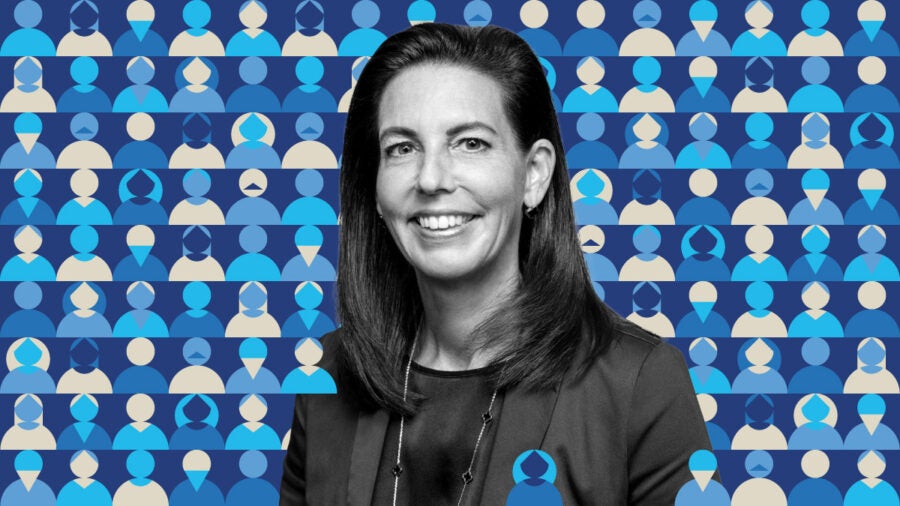
The global employment landscape is undergoing a transformation. Technological advances, demographic shifts and geoeconomic pressures will help create 170 million new jobs by 2030, according to The World Economic Forum’s (WEF) Future of Jobs Report. But these factors will also lead to the displacement of 92 million jobs.
Jolanda Grob, chief people officer (CPO) at Zurich Insurance Group, says: “This shift demands continuous upskilling and reskilling initiatives to ensure our employees are equipped to handle new roles and responsibilities.”
But predicting which skills will be indispensable in five years and which will become irrelevant is no easy task. Employers expect 39% of workers’ core skills to change by the start of the next decade, according to the WEF report, which surveyed 1,000 global employers. So where should companies focus their upskilling and reskilling efforts?
Grob says that question is difficult to answer thanks to the pace of technological evolution. “Traditional strategic workforce planning is no longer effective because of how unpredictable the future is.”
But she is confident that soft skills, such as critical thinking and adaptability, will remain crucial. Although demand for AI literacy has risen, employers surveyed in the WEF report believe analytical thinking, resilience, flexibility and leadership are still essential workforce skills.
Zurich has identified three categories of skills in its workforce: core skills and capabilities that are specific to the insurance sector, human skills such as creative thinking and tech and digital skills.
AI’s opportunities and risks
AI competence is among the tech skills that the company is seeking to develop internally. According to Grob, generative AI represents both an opportunity and a challenge for the insurance sector.
“These technologies are reshaping the traditional insurance process and increasing the need for new technical skills, while helping to ease the pressure on an aging workforce,” she says. “AI is not just replacing transactional tasks but supplementing human expertise.”
Zurich is already using the technology in its underwriting, fraud-detection and claims-processing operations. It is also exploring how AI can be used to improve customer experience and decision-making in the organisation.
AI is not just replacing transactional tasks but supplementing human expertise
“This shift demands a more analytical and technology-savvy workforce, and also increases the need for human judgement, ethics in AI and regulatory compliance,” Grob says.
She adds that employees must be comfortable experimenting with AI to maximise the technology’s potential. “To effectively embrace technology, employers must foster an environment where employees feel encouraged to experiment and learn, ensuring they see the value and efficiency these tools can bring to their work.”
For all digital skills, Zurich has adopted a ‘70-20-10’ approach to learning, where 70% of skills are learnt through hands-on experience, 20% are learnt socially from watching and listening to others and 10% are learnt through formal training.
In addition to supporting workers in their day-to-day tasks, AI tools can also help employers identify future skills requirements. Grob says the use of AI-driven “talent intelligence platforms” has helped Zurich to map its existing workforce capabilities to future business needs, while also predicting turnover rates, identifying obsolete skills and assessing internal skills gaps.
Improving internal mobility
To fill these gaps, Zurich is prioritising training and development of its existing workforce. “In today’s fast-changing world, we can’t simply recruit skills for the future,” Grob says, “so we are building skills and crucial experiences from within.”
As part of its robust learning and development (L&D) suite, Zurich offers online technical academies, skills-building initiatives and leadership programmes. It has also established Z lab, a programme designed to identify new skills and emerging technologies, to help future-proof its workforce.
We can’t simply recruit skills for the future, we need to build them from within
Zurich’s emphasis on internal mobility (the insurer boasts a 72.4% internal hiring rate) has motivated its staff to make good use of its L&D programmes. Zurich’s 63,000 employees logged 1.1 million hours on the firm’s online learning platform last year.
“Future-proofing the workforce requires a combination of strategic workforce planning, technology-driven skills assessment and a culture of continuous learning,” Grob says.
Through this strategy, Grob aims to support Zurich’s workers to remain employable for the long term. “Due to evolving customer expectations, new regulations and rapid technological development, there is a huge need to support our people to be prepared and upskilled for today and the future,” she says. “Companies that integrate AI-driven insights, leadership development and a skills-based talent strategy will be best positioned to navigate the workforce transformation over the next five to 10 years.”
Employers must also ensure workforce resilience and engagement to navigate the challenges ahead, Grob adds. While future job requirements and technological advances are difficult to predict, skills such as adaptability and agility will never become obsolete. These are the competencies firms must foster to succeed in the next decade and beyond.

The global employment landscape is undergoing a transformation. Technological advances, demographic shifts and geoeconomic pressures will help create 170 million new jobs by 2030, according to The World Economic Forum's (WEF) Future of Jobs Report. But these factors will also lead to the displacement of 92 million jobs.
Jolanda Grob, chief people officer (CPO) at Zurich Insurance Group, says: “This shift demands continuous upskilling and reskilling initiatives to ensure our employees are equipped to handle new roles and responsibilities.”
But predicting which skills will be indispensable in five years and which will become irrelevant is no easy task. Employers expect 39% of workers’ core skills to change by the start of the next decade, according to the WEF report, which surveyed 1,000 global employers. So where should companies focus their upskilling and reskilling efforts?
